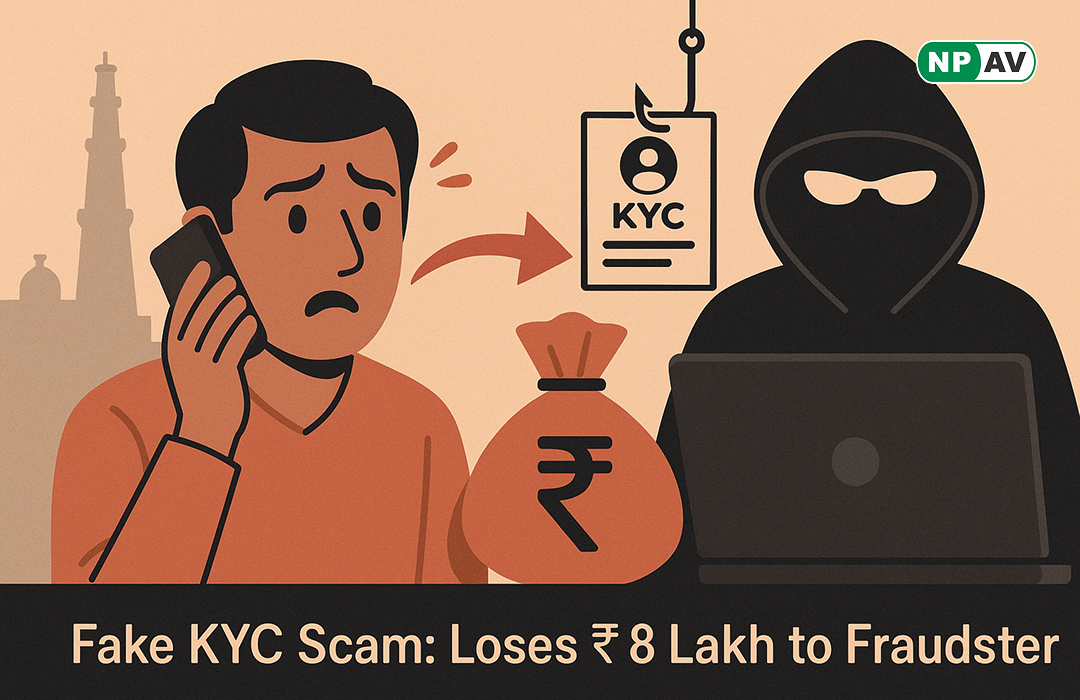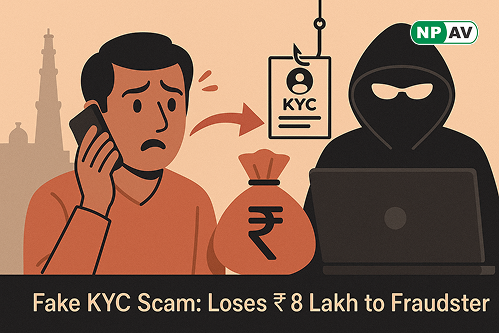Fake KYC Scam: Delhi Victim Loses ₹8 Lakh to Fraudsters

A troubling surge in fraud targeting bank customers has emerged, with criminals posing as bank or digital wallet officials to make convincing KYC (Know Your Customer) claims. These scams aim to extract personal information, deploy remote-access applications, and drain victims' accounts, leading to reported losses amounting to hundreds of thousands of rupees in recent months.
How the Scam Works:
Urgent Updates, Remote Access, and Identity Theft According to cybersecurity analysis from Moneycontrol, these scammers initiate contact through phone calls or instant messages, claiming that a user’s KYC is “incomplete” or “expiring.” They warn that failure to comply will result in account suspension. Victims are typically directed to click a link or call a number that leads them to a fraudulent verification process.
Scammers often pressure the recipient to download remote-access applications like AnyDesk or TeamViewer.


Once these apps are installed, the fraudsters gain control over the victim’s device, allowing them to access banking applications, capture OTPs, and transfer funds. In one case in Delhi, a victim was defrauded of over ₹8 lakh in a single session.
Warning Signs and Protective Measures Financial security experts highlight several red flags and precautions to take:
Fake Urgency and Pressure Tactics: Messages urging “update now or lose access” are common in these scams. Genuine banking requests are typically communicated through official channels, not random SMS or WhatsApp messages.
Suspicious Links or Caller IDs:
Fraudsters often use spoofed sender IDs with unrecognizable SMS origins or unofficial email addresses referencing “KYC update.” Users should independently verify by contacting their bank directly.
Requests to Install Remote-Access Tools:
Legitimate bank personnel will never ask users to install AnyDesk or TeamViewer.


It is crucial to refuse to share OTPs or passwords over calls and to avoid downloading apps from unsolicited links.
Identity and Transaction Monitoring:
Banks are increasingly requiring biometric verification and KYC record updates. Cybersecurity authorities urge users to monitor their statements closely and report any unauthorized activity immediately. Many banks now implement two-factor authentication, which should be enabled.
Report and Alert Mechanisms:
Victims should report incidents directly to their bank and lodge a complaint with the National Cyber Crime Reporting Portal or by calling the helpline at 1930.
By staying informed and vigilant, users can better protect themselves against these deceptive scams.






